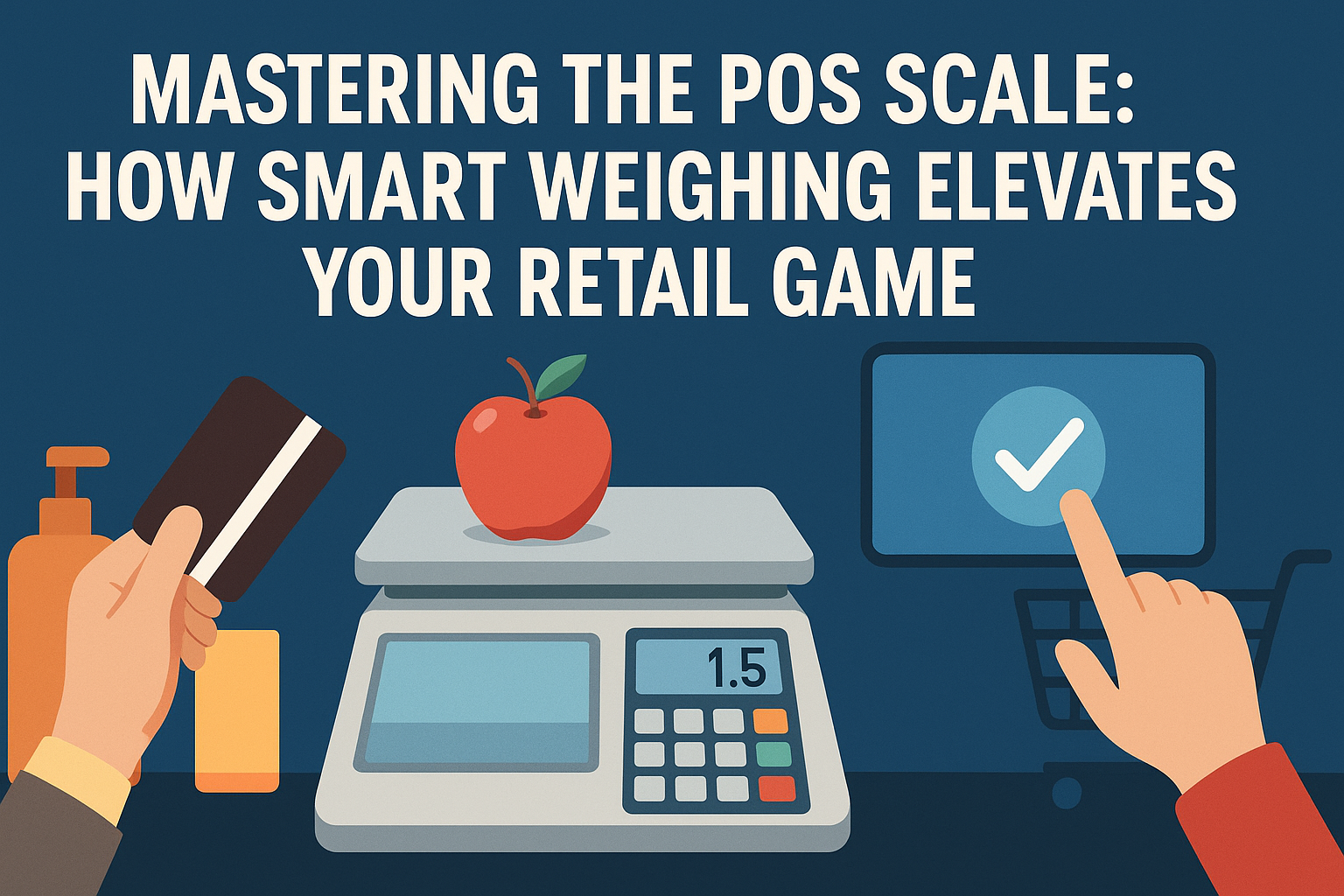Mastering the POS Scale: How Smart Weighing Elevates Your Retail Game
Introduction: A Hook That Weighs Heavy
Imagine a bustling grocery checkout where time ticks in seconds. A busy cashier, customers queuing, and the pressure inches forward. Now picture this: a POS scale that instantly weighs produce, sends data seamlessly to your POS, and prints a barcode label—all in the blink of an eye. This isn’t a dream—this is real-world efficiency. POS scale integration isn’t just a tool—it’s a game-changer.
What Is a POS Scale—and Why It Matters
A POS scale (point-of-sale scale) pairs traditional POS hardware with weighing capability. Think grocery stores, delis, or markets selling bulk items. The scale plugs into your register system, enabling instant weight-based pricing, barcode labeling, and precise inventory updates. This integration cuts mistakes, accelerates checkout, and enhances accuracy.
Data-Backed Advantages of Using a POS Scale
- Sharper Accuracy
Minimize pricing errors and customer disputes with precision weighing—critical when pricing by weight. - Lightning-Fast Checkouts
Barcode labels generated by the scale plug directly into the POS—no manual entry, no second-guessing, no delays. - Inventory Integrity
Every sale by weight auto-updates your stock levels in real time—no more mismatches or manual tracking. - Smarter Tool Matching
Choose scales based on capacity, platform size, and business type—from cafés weighing beans to delis slicing meats. - Certified for Trade
Legal-for-trade scales (e.g. NTEP-certified in the US) ensure compliance and build trust for weight-based transactions.
Personal Anecdote: From Chaos to Checkout Zen
When I managed a local deli, we struggled with a clunky, separate scale and manual price entry. Cashiers wrestled with long queues and customers grew impatient. Then we installed an integrated POS scale. The moment the sliced meat hit the platform, a barcode printed instantly—imagine the relief! Lines shortened by 30%, and inventory discrepancies dropped. Empowered by that simple upgrade, we rebuilt customer trust and saved hours in daily reconciliation.
Key Considerations When Choosing a POS Scale
Here’s a helpful breakdown to guide your decision:
- Business Type & Application
Tailor your choice—grocery stores need heavy-duty, high-capacity models; cafés may prefer compact, precise scales. - Weight Capacity & Platform Size
From lightweight herbs to hefty produce, choose accordingly. For instance, DETECTO’s APS line offers platforms from 6×10″ to 18×18″, capacities up to 250 lb. - Accuracy and Resolution
Smaller increments (e.g., 0.01 lb) matter in precision-driven operations. - Regulatory Certification
Make sure the scale is certified for trade to avoid legal headaches and maintain trust. - Durability & Maintenance
Look for easy-clean stainless steel platforms and robust load cells that withstand daily wear.
Benefits Summarized in Bullet Form
- Reduced pricing errors
- Faster customer throughput
- Real-time inventory tracking
- Lower training and reconciliation time
- Compliance with weight-based sale regulations
- Optimized checkout ergonomics
Conclusion: Scale Up Your Retail Strategy
In an era where speed, accuracy, and customer experience define success, a POS scale is indispensable. It injects efficiency into your checkout, ensures accuracy, and sharpens inventory control. To launch these gains:
- Assess your operational needs—capacity, accuracy, workflow.
- Choose a certified, durable model fitting your environment.
- Integrate with your POS system for seamless communication.
- Train your staff effectively—the scale does the heavy lifting, not them.
- Monitor performance metrics—inventory discrepancies, checkout time, customer satisfaction.

